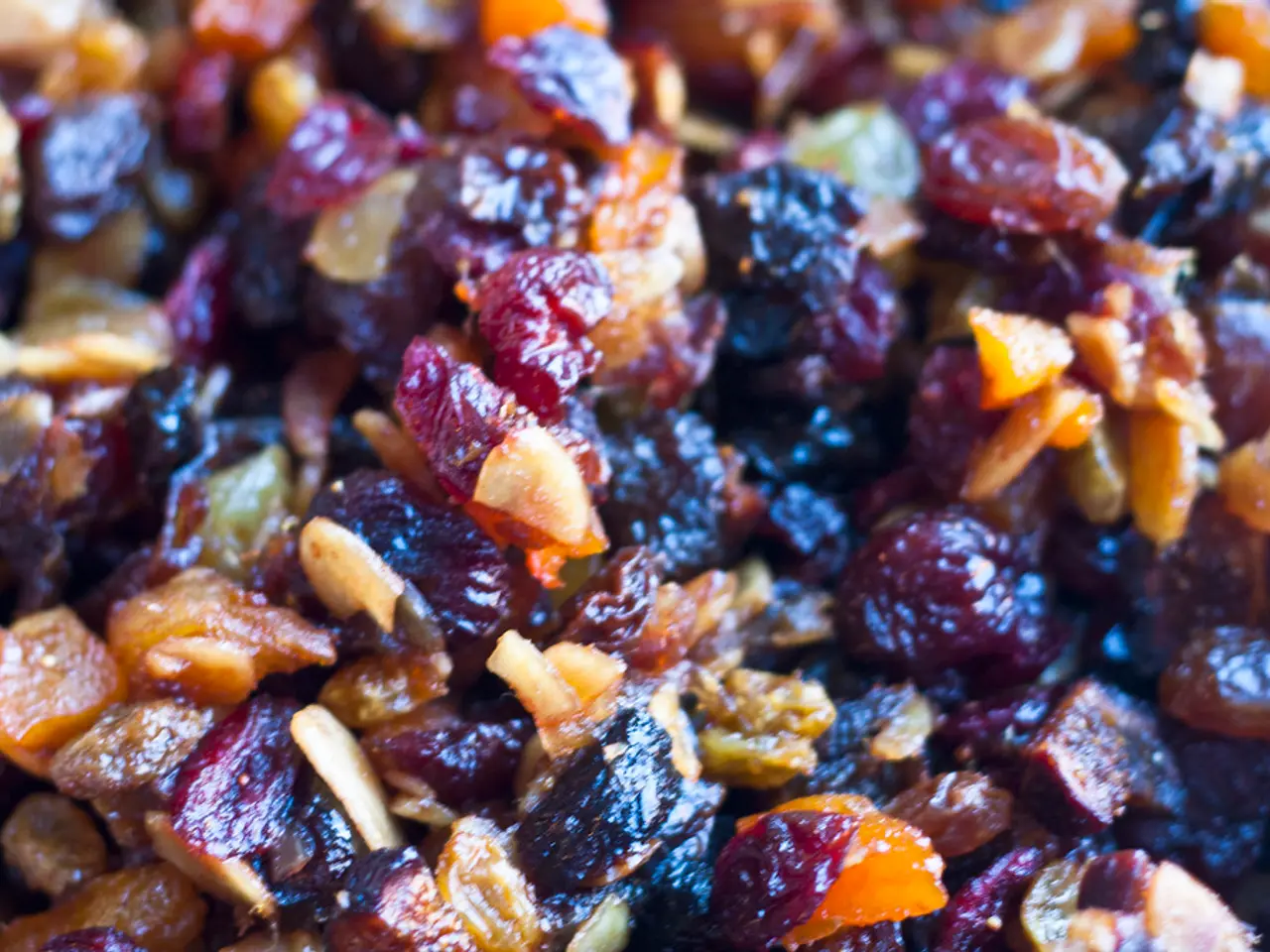Analyzing the growing fad of hydration with added vitamins in water
In the ever-evolving beverage industry, a popular choice has been the functional water known as vitamin waters. One of the most well-known representatives of this category is the brand Glaceau Vitaminwater, produced by the Coca-Cola Company. It forms part of Coca-Cola's diverse beverage portfolio, which includes water, sports drinks, coffee, tea, and other beverages.
Vitamin waters are distinct from regular mineral waters, as they contain mineral water, vitamins from groups B and C, minerals, flavorings, and sometimes additional ingredients like collagen. These beverages are labelled as a source of various vitamins due to their high content, and according to Regulation 1169/2011, a significant amount of vitamins and minerals is considered when the content represents 7.5% of the reference nutrient values (RNV or VNR).
Common vitamins found in vitamin waters include Vitamin C (16 mg/100 ml, equivalent to 20% of RNV), Niacin (vitamin B3, 1.6 - 3.2 mg/100 ml, between 10 and 20% of RNV), Pyridoxine (vitamin B6, 0.14 - 0.28 mg/100 ml, between 10 and 20% of RNV), Biotin (5 - 10 μg/100 ml, between 10 and 20% of RNV), and Cyanocobalamin (vitamin B12, 0.25 - 0.5 μg/100 ml, between 10 and 20% of RNV).
However, it's essential to note that while vitamin waters provide an extra dose of vitamins, they also contain additives that are not free from risks. Some additives, such as sodium benzoate (E211), are rated as an additive to "avoid." Upon examination of the ingredient list, the presence of additives is evident, but not all additives are equally harmful to health.
Despite the convenience of vitamin waters, they are relatively expensive compared to other beverage options. The average price of vitamin waters is 1.71 euros/liter, which is 61% more expensive than the average price of mineral waters. In contrast, consuming fresh foods like an orange (covering 100% of vitamin C needs and costing only 0.50 euros) or sardines (providing more vitamin B12 and B6 than a liter of vitamin water and being cheaper) can offer a more cost-effective and nutritionally balanced solution.
Moreover, the trend in the beverage industry is towards healthier options, including products without sugars, fats, and alcohol, and products with added vitamins and minerals. However, it's crucial to be mindful of the potential risks associated with overconsumption. Drinking too much vitamin water can imply the excessive intake of certain vitamins, especially the fat-soluble ones like A, D, E, and K, which can accumulate in the body and cause toxicity.
Lastly, it's important to highlight that the European Food Safety Authority (EFSA) has not authorized some of the claims made on vitamin water labels, such as those related to collagen and zinc. Therefore, it's advisable to approach these beverages with a critical eye and consider them as one part of a balanced diet, rather than a substitution for fresh foods.
In conclusion, while vitamin waters offer a convenient way to cover needs in some necessary vitamins, it's essential to consider their cost, nutritional composition, and potential risks. A more balanced and cost-effective approach might be to invest the same money in fresh foods to broaden the range of necessary nutrients for our health.
Read also:
- Nightly sweat episodes linked to GERD: Crucial insights explained
- Antitussives: List of Examples, Functions, Adverse Reactions, and Additional Details
- Asthma Diagnosis: Exploring FeNO Tests and Related Treatments
- Unfortunate Financial Disarray for a Family from California After an Expensive Emergency Room Visit with Their Burned Infant








